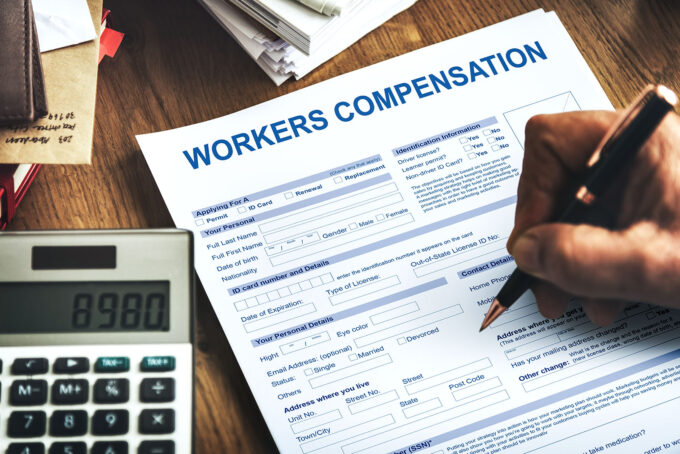In the United States, workers’ compensation is a mandatory policy that protects employees from job-related injuries and illnesses by providing employers with financial support for compensating an employee who suffers a serious injury or illness at work.
However, workers’ compensation can be very expensive in some industries or organizations and can influence business costs. For example, it can cost more than $5 million annually to have workers’ compensation coverage in some industries like manufacturing, construction, farming, and casinos.
Understanding the factors that drive up the cost of workers’ compensation will help you identify potential areas for savings.
Below is crucial information that workers’ comp providers like Cerity often factor in when determining the cost of workers’ comp insurance.
The Type of Workers’ Compensation Insurance

Source: compass-insurance-agency.com
The type of workers’ compensation insurance you have can have a significant impact on how much your organization must spend on this type of coverage. Typical workers’ compensation insurance options include single-limit, multi-peril, and umbrella insurance.
Single-limit insurance is when you purchase only enough coverage to pay out the maximum amount the law entitles you to. This is often the case in smaller businesses that don’t anticipate many claims.
Multi-peril insurance covers you for two or more types of perils. This is great for businesses with employees and customers who could cause a claim.
On the other hand, Umbrella insurance offers extra coverage by providing additional liability protection in the probability of you suffering a catastrophic lawsuit.
The Location Your Business Operates
The cost of workers’ compensation insurance is higher in some locations than in others for various reasons that might elevate or lessen your business’s risk profile. For instance, operating in an environment with hostile weather conditions or places where an injury is highly likely could mean paying more in worker’s comp premiums.
How Much Your Employees Earn

Source: timedoctor.com
Another way through which the cost of workers’ compensation is affected is by how much your employees earn. Generally, the lower you pay employees, the less in workers’ compensation premiums you will have to pay. If your employees earn a higher salary, your rates will subsequently be higher.
The Frequency and Severity of Claims
The frequency and severity of claims can also affect the cost of workers’ compensation insurance. These factors include the number of claims filed, the age of your workers, the type of job performed, and the industry of operation.
If a particular accident happens very frequently or causes a severe injury, then it may lead to a higher claim.
The Industry of Operation
When calculating the cost of workers’ compensation, the first thing that will consider is the industry in which you operate and the type of work that you do. Industries often involved in high-risk events and a high frequency of accidents will have high workers’ compensation costs.
For example, your workers’ compensation rates will undoubtedly be higher if you are in a field prone to many injuries, such as forestry, mining, quarrying, agriculture, or construction.
To find out how the cost of your workers’ compensation may be affected by the industry in which you do business, ask your insurance agent to provide you with a comprehensive report on the cost of workers’ compensation in your area.
The information in this report can help you determine if there is a significant cost difference between your operation and that of a competitor in the same industry.
Injury Prevention Measures

Source: forbes.com
Injury prevention efforts can significantly impact the cost of workers’ compensation. For example, improper use of machinery, insufficient training, and unsafe work practices are key factors that can influence the cost of workers’ compensation.
So, ensuring that all workers receive proper training and have the proper equipment to perform their jobs can significantly reduce the cost of workers’ compensation.
Whether There’s Any Other Insurance Coverage
Another area that can affect the cost of workers’ compensation insurance is whether there is other insurance coverage. So, if you own a construction company and carry general liability insurance, your workers’ compensation rates will be much lower than if you do not have this coverage.
Size of Company
Another factor that can affect the cost of workers’ compensation is the size of your company. If you operate a very small business, your rates will be lower than those of a large company. Similarly, if you operate in a very large industry in a large state, your rates will be much higher than if you operate in a smaller industry in a smaller state.
Tips for Reducing the Cost of Workers’ Compensation Premiums

Source: brinknews.com
As pointed out earlier, workers’ compensation programs can be expensive. So, if you want to reduce your costs or find ways to lower your premiums, here are some tips for reducing the cost of workers’ compensation.
Conduct Thorough Risk Assessments
You first want to conduct a thorough risk assessment of your workplace and your employees.
For example, you’ll want to look at the types of injuries, how often they occur, and what can be done to prevent them. You can also look at how injuries cost your company and evaluate your company’s finances to see what you can cut.
This will give you a better idea of what you can do to lessen your premiums.
Establish a Strong Corporate Culture of Safety and Promote Consistent Training Standards
You’ll also want to work towards establishing a strong corporate culture that promotes safety and consistency in training. This will help your employees practice the right safety measures at work, reducing your workers’ compensation premiums.
The Final Words
While the details of each workers comp provider’s approach to coverage will vary, there are some common criteria that these companies will follow regarding workers comp insurance for employees.
Luckily, by making sure your risk assessment is thorough, and you have a strong corporate culture of safety and consistency in training, you will not only reduce your insurance premiums but also make sure your employees feel safe on the job.







